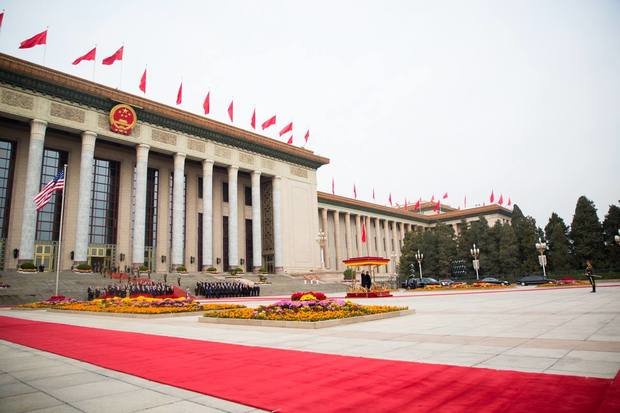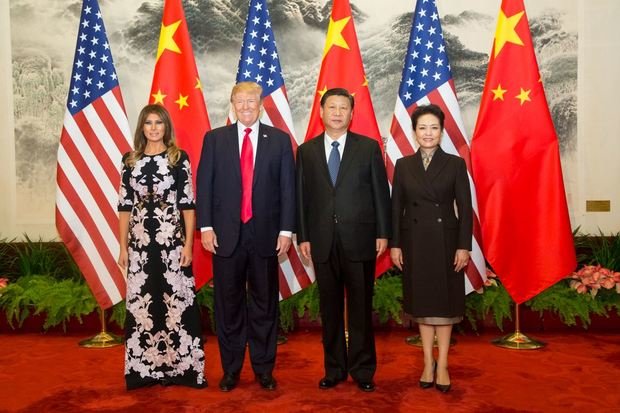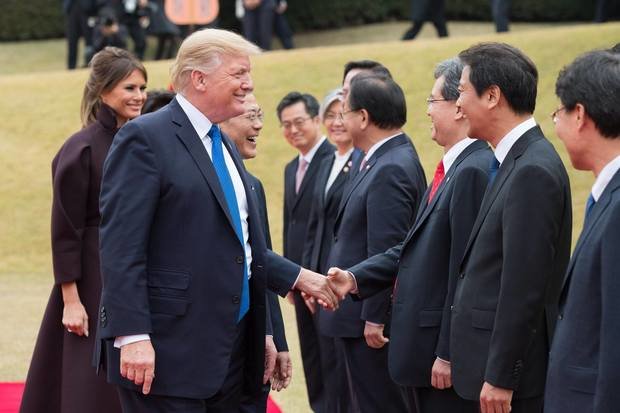International panorama: after Trump’s visit to China
Former Soviet diplomat Yulduz Khaliullin about the absence of stability around the world. Series 9: meeting of the USA and PRC leaders
The last week was marked with an important political event – American President Donald Trump's tour in Asian countries. And his visit to China took the central seat in this trip. In his today's column, Soviet and Russian diplomat, columnist of Realnoe Vremya Yulduz Khaliullin talks about the results of the meeting of two superpowers' presidents – Trump and Xi Jinping.
North Korean dilemma
Donald Trump's tour in four Asian countries – Japan, South Korea, China and Vietnam was in the centre of attention of the American media. But the world media pay great attention to the results of negotiations of the USA president and PRC general secretary, which took place in Beijing.
It seems that both sides prepared for this ''top meeting'' on the Chinese land well. The American president was received in the palace of Forbidden City of Chinese emperors for the first time in history. The USA President, in turn, showed the hospitable hosts a video where his granddaughter was singing a song in the Chinese language. But it all is the visit's façade, of course.

As for the discussion of important international problems, in general, it mainly remained behind closed doors. In addition, there was no press conference after the discussion ended that numerous reporters waited for. Xi Jinping and Donald Trump just made short statements about the results of negotiations. It seems that the sides agreed not to answer the reporters' questions. There was an impression that the parties came to an agreement that they needed to achieve North Korea's denuclearisation in accordance with decisions of the UN and Security Council's resolution. Trump urged Beijing to cut financial links with DPRK. The PRC general secretary, in turn, insisted that a dialogue between Washington and Pyongyang was needed to solve the crisis and confirmed that China was going to meet the UN resolution on this issue.
It should be noted that Donald Trump threatened to impose economic sanctions against those countries that support commercial and economic relations with DPRK. It, undoubtedly, sounded impossible for China that had maintained considerable commercial links with North Korea until recently. Just because it's almost possible to do. What is more, it is outside the very United States' interest (I mean economic sanctions against China).

Hundreds of billion dollars at stake
The annual volume of Chinese-American commercial relations is $750 billion. It coincides with the sum of annual expenditures of the USA on defence. In addition, the volume of public bonds of the USA that are in PRC's hands already exceeds $1 trillion. China, in fact, can require returning bonds for such a high price, which can lead the dollar to a collapse. But it isn't interested in it and will never do it because the Chinese economic penetration in foreign countries depends on the dollar's capacity to a great degree.
During Trump's visit to China, several big commercial and economic agreements at a total sum of $250 billion have been signed. But some of them are just memorandums. We're talking about not only American investments in China's economy but also Chinese investments in the United States' economy. Particularly China Energy Investment Corporation is going to invest about $85 billion in shale gas and chemicals manufacturing projects in West Virginia.
Three Chinese corporations signed an agreement with Alaska authorities and Alaska Gasline Development Corp. (AGDC) on a natural gas pipeline project deal at over $40 billion in the northern American state.

Semi-closed territory for American companies
Not only a huge a deficit in trade with China concerns the Americans (which is hundreds of billion dollars. By the way, the analogous deficit is about $70 billion for Japan) – but also limited free access of big American companies to China's markets concerns them. The Chinese ask to create joint American-Chinese enterprises, especially in finance. For instance, American Ford and General Electric transnational corporations work in China in joint ventures with China, not on their own. And the work of such American companies as Google and Facebook and some others are banned in China.
In general, the global situation around the world depends on the state of relations between these modern superpowers – the USA and PRC – to a great degree. We can suppose that the leaders of both countries also discussed world problems. We can only guess about the course of this discussion, common points and disagreements. Nevertheless, it is synchronisation of the time and approaches to consider these problems in the future.
We can think that Donald Trump needed the trip to Beijing, Tokyo and Seoul to cement his positions inside the country – in relations with congressmen and senators when they have certain disagreement while discussing different problems.